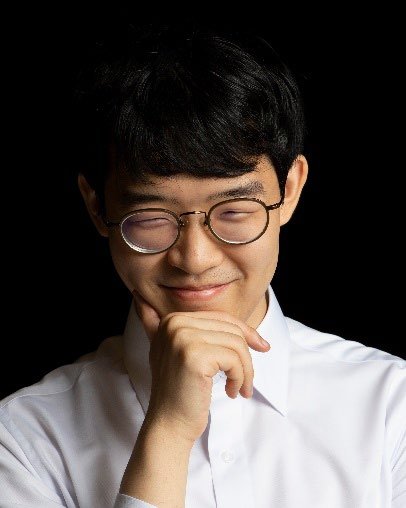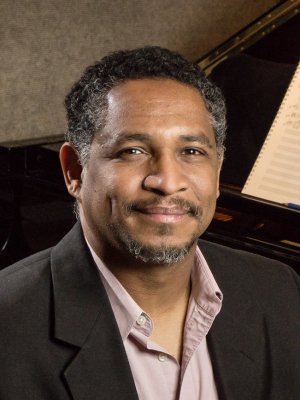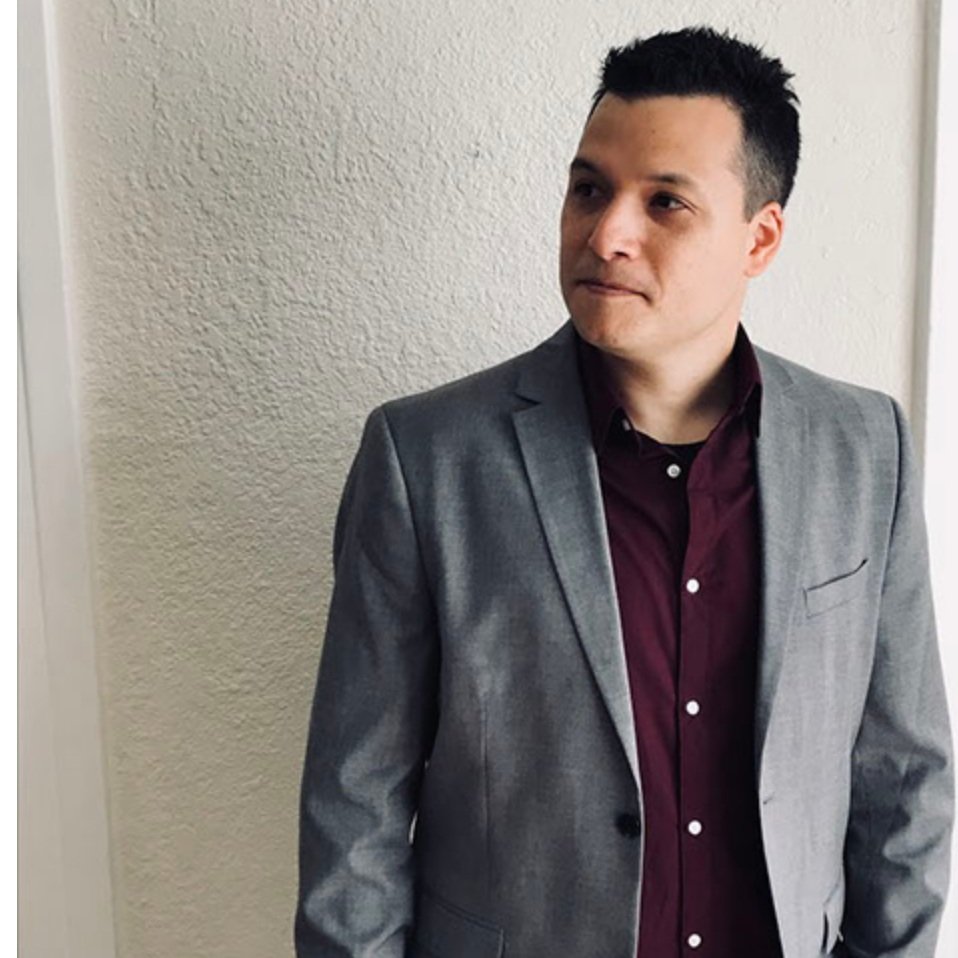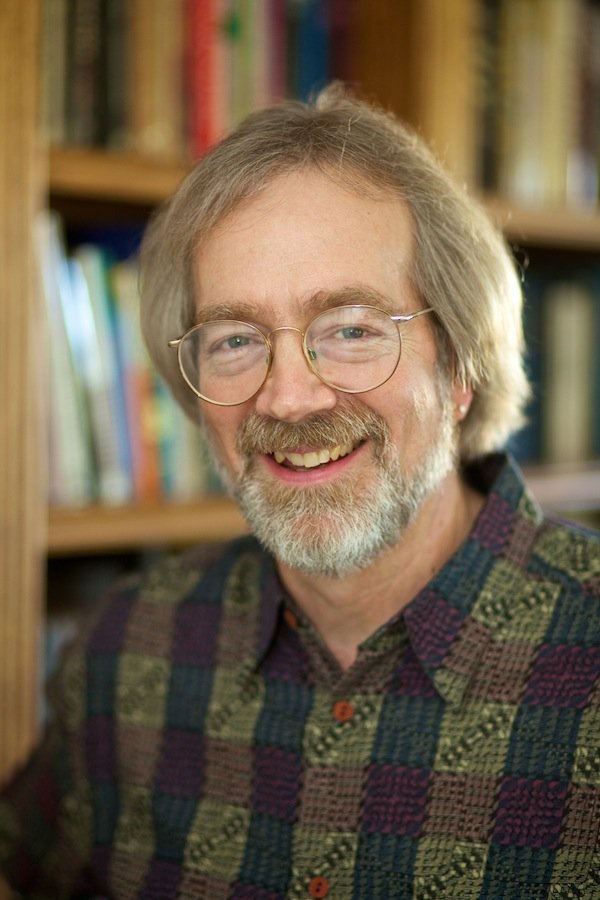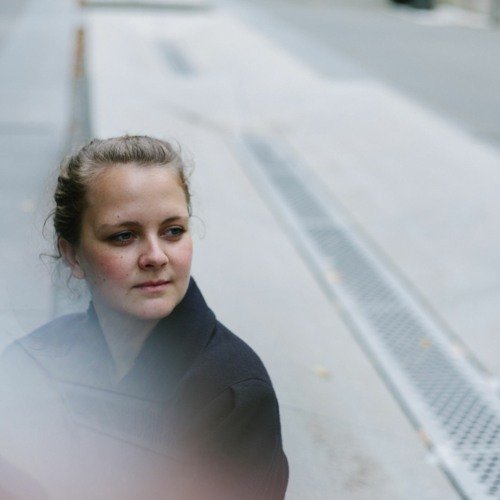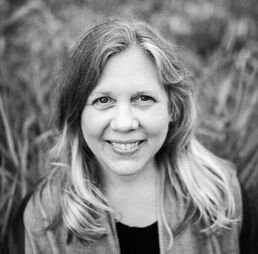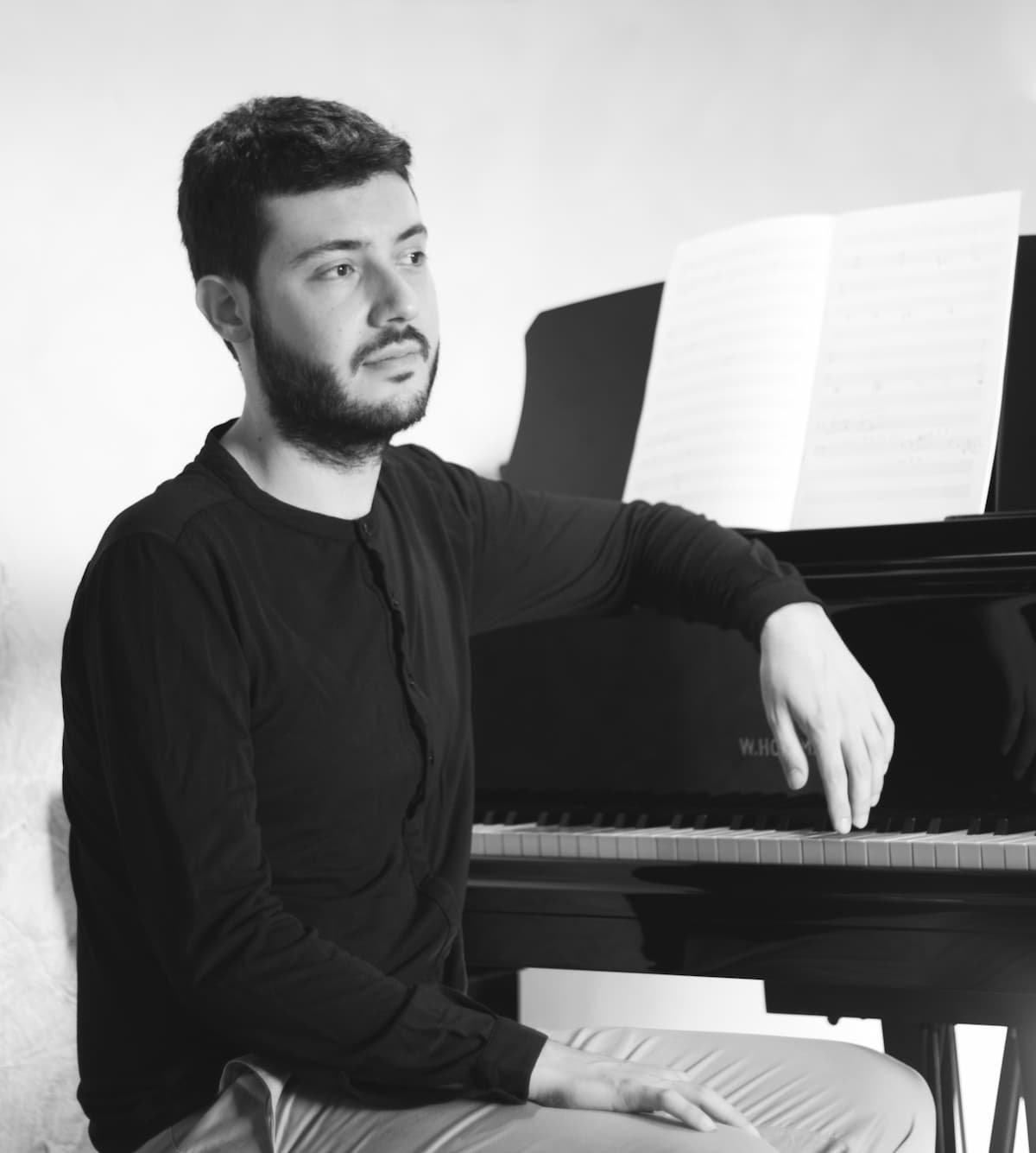I Will Lift My Eyes Unto the Mountains - Project
I WILL LIFT MY EYES UNTO THE MOUNTAINS
NEW VIOLA WORKS INSPIRED BY THE PSALMS
The culmination of a yearlong collaboration between composers and performers representing a wide variety of Christian traditions, this ecumenical project celebrates the unique power of the arts to bring together Christians in fellowship and mutual conversation around our shared love for Scripture.
For this project, pairs of composers were each asked to write a solo viola composition inspired by a given psalm. Listening to each pair of compositions provides a unique and fascinating way to explore the ways each psalm can be interpreted differently.
Originally presented in Boston in 2022, I WILL LIFT MY EYES UNTO THE MOUNTAINS is the most recent version of Deus Ex Musica’s series of events that use new music to explore the psalms. These include IN THE SHADOW OF YOUR WINGS and THE BEAUTIFUL WORLD OF HOLINESS, each of which feature new compositions for voice and piano, as well as SEARCH ME, O GOD: a new album (and live event) featuring new works for solo violin written by Jewish and Christian composers.
Scroll down to watch the videos, read about each piece, and learn about the composers.
THE MUSIC
PSALM 121
1 I lift up my eyes to the hills—
from where will my help come?
2 My help comes from the Lord,
who made heaven and earth.
3 He will not let your foot be moved;
he who keeps you will not slumber.
4 He who keeps Israel
will neither slumber nor sleep.
5 The Lord is your keeper;
the Lord is your shade at your right hand.
6 The sun shall not strike you by day
nor the moon by night.
7 The Lord will keep you from all evil;
he will keep your life.
8 The Lord will keep
your going out and your coming in
from this time on and forevermore.
MARIA THOMPSON CORLEY: Psalm 121
ABOUT THE MUSIC:
Psalm 121 helped me through a very difficult period in my life. At the time, I used this Scripture daily to remind myself that God was never asleep; if I just “lifted up my eyes,” no matter what situation seemed about to overwhelm me, I could be certain that I wasn’t alone. Having visited the Rockies many times when I was growing up in Alberta, Canada, I think of mountains as being both towering (evoked by sections in the upper reaches of the viola and the use of arpeggios) and securely grounded (represented by the pedal point on the lowest string). Although the recurring use open “C” is meant to imply a firm foundation, it also literally depicts the feeling of being at a low point, in contrast with sections that “climb higher.” When the “C” is pizzicato, it is meant to illustrate achieving relative stability despite the vagaries of life. I wanted my piece to feel calm and reassuring, while also giving a hint of the anxieties that make us seek God’s assistance, referenced by the slight forward push and dotted rhythms in the middle section. Life will always have ups and downs, but we can achieve peace if we never forget the source of our strength. I hope and pray this piece expresses this message to the listener. - Maria Thompson Corley
ABOUT THE COMPOSER:
Maria Thompson Corley began composing and arranging as a child. Since then, her music has been commissioned and recorded by numerous musicians and entities. She is published by Walton, Classical Vocal Reprints, NoteNova, and North Star. An Associate Composer of the Canadian Music Centre, she is known primarily for her vocal music, including short form composed operas for The Decameron Opera Coalition’s first two series, Tales from a Safe Distance and Heroes. She is a co-recipient of Opera America’s 2021 IDEA Grant. Dr. Corley is the music director/organist at St. Thomas Episcopal Church in Lancaster, PA.
“As I read Psalm 121. And I was reminded of my wedding, and of my mothers death. At the former, a boys choir singing Lift Thine Eye (Mendelssohn) as I walked down the aisle. At the latter, my mothers priest reading the psalm as she lay dying. As I listened to this new piece, I thought of God’s constancy in times of joy and sorrow. I think it was the repeated tone around which everything else ascended and descended.” - Comment from listener
Joogwang Lim: I LIFT UP MY EYES
ABOUT THE MUSIC:
Psalm 121 is titled as a “song of ascents” to the temple. The narrator(s) first seek help, and soon realize that it is God who helps them. They acknowledge that there are obstacles and dangers on the way. Nevertheless, they are confident that God will keep them from all harm. This harm can be both physical and metaphorical – struggles from the Christian life. Also, the sanctuary - their contextual destination – still stands on the earth, but is spiritually separated from the secular world. While reading this psalm, I came to internalize the text with my experience of climbing mountains and my spiritual life: I, as a living creature, am bound to the physical and earthly realm, and prone to slip and stumble. But during my life, God continuously assures me of his guidance, on the way to the kingdom of God. This piece is my reflection on Psalm 121, and the materialization of my spiritual journey. Unlike real mountaineering, which ends in descending, the beginning section never comes back in the original motifs, for the way of mine is ever ascending the slope. - Joogwang Lim
ABOUT THE COMPOSER:
Joogwang Lim (b.1992) is a South Korean composer. His main interest is the fusion between music and other ideas, such as myths, paintings, religious texts, political events, and scientific theories and virtual world. His compositions have been performed by Seoul Gayageum Ensemble, ASEAN Youth Ensemble, Korean Army Training Center Band, Prime Philharmonic Orchestra, Agape Festival Choir, Ensemble mise-en, Splinter Reeds, Sound Icon and MIVOS Quartet. Living in Boston, Joogwang is currently pursuing a doctoral degree in composition with Joshua Fineberg at Boston University. He earned his bachelor's degree in composition studying with Shinuh Lee from Seoul National University.
PSALM 130
1 Out of the depths I cry to you, O Lord.
2 Lord, hear my voice!
Let your ears be attentive
to the voice of my supplications!
3 If you, O Lord, should mark iniquities,
Lord, who could stand?
4 But there is forgiveness with you,
so that you may be revered.
5 I wait for the Lord; my soul waits,
and in his word I hope;
6 my soul waits for the Lord
more than those who watch for the morning,
more than those who watch for the morning.
7 O Israel, hope in the Lord!
For with the Lord there is steadfast love,
and with him is great power to redeem.
8 It is he who will redeem Israel
from all its iniquities.
OUT OF THE DEPTHS by Biljana Bojović
ABOUT THE MUSIC
Out of the Depths for solo viola (2022) is inspired by Psalm 130. The use of “ison,” a drone note, is heard throughout the piece, a feature existing in various Orthodox Christian chants but also in Balkan folk music, used to support and enrich the melody. In the middle section, a brief snippet of a vesperal melody in the sixth tone of the Serbian Orthodox chant is quoted. - Biljana Bojović
ABOUT THE COMPOSER
Biljana Bojovic is an alumna of Interlochen Arts Academy, West Virginia University, and Butler University. She studied music composition with John Beall, Frank Felice, and Michael Schelle and has participated in composition masterclasses with William Bolcom, Eric Ewazen, Seymour Barab, Paul Chihara, Elliott Schwartz, Stephen Gryc, and many more. Biljana’s compositions have been performed at festivals, conferences, and various recitals throughout the United States, England, Czech Republic, Slovenia, and North Macedonia. Her works are written mostly for solo instruments and chamber ensembles, and often draw inspiration from Balkan folk and Orthodox church music. She currently lives and creates in California.
CANTATA by Carlos R. Carrillo Cotto
I. Sinfonia ("De lo profundo")
II. Recitativo ("¿Quién oh Señor, prodrá mantenerse?")
III. Aria ("Mi alma espera a Jehová")
IV. Choral ("abundante redención")
ABOUT THE MUSIC
In my setting of Psalm 130, I set up a few challenges; A Lutheran Cantata in multiple movements for a single instrument without voices. I used the Spanish version of the Psalm in my work, which I felt is a somewhat more poetic text. - Carlos R. Carrillo Cotto
ABOUT THE COMPOSER:
Born in San Juan, Puerto Rico, Composer Carlos R. Carrillo Cotto holds degrees from the Eastman School of Music (BM), Yale University (MM), and the University of Pennsylvania (Ph.D.). Dr. Carrillo is the recipient of numerous awards, including the Bearns Prize, the Charles Ives Scholarship from the American Academy of Arts and Letters, BMI, and ASCAP awards. He has taught composition at DePauw University, Reed College, and the Conservatory of Music in San Juan, Puerto Rico. Currently, Dr. Carrillo is an Associate Professor of Composition-Theory at the University of Illinois at Urbana-Champaign.
Psalm 126
1 When the Lord restored the fortunes of Zion,[a]
we were like those who dream.
2 Then our mouth was filled with laughter
and our tongue with shouts of joy;
then it was said among the nations,
“The Lord has done great things for them.”
3 The Lord has done great things for us,
and we rejoiced.
4 Restore our fortunes, O Lord,
like the watercourses in the Negeb.
5 May those who sow in tears
reap with shouts of joy.
6 Those who go out weeping,
bearing the seed for sowing,
shall come home with shouts of joy,
carrying their sheaves.
Josh Rodriguez: como los que sueñan
ABOUT THE MUSIC
The first lines from the ancient biblical Psalm 126, contain a certain nostalgia, "When the Lord restored the fortunes of Zion, we were like those who dreamed. [translated in Spanish as "como los que sueñan"] Our mouths were filled with laughter, our tongues with songs of joy." However, this remembrance becomes a petition, "restore our fortunes, Lord." The psalmist desperately needs a miracle like the ones he'd seen in the past. This sense of perseverance in faith, of a farmer sowing in tears and waiting for a plentiful future, stands out. It's not blind or passive or despairing. This kind of faith - steadfast yet mundane, diligent yet quiet - challenges my desire for control, for instant gratification and fulfillment. This is the prayer of one who is broken, but hopeful to see new life, like "streams in the desert." (v4) This work, written for Peter Slowik and Deus Ex Musica, concludes with a quote from Brahms's glorious German Requiem, a melodic fragment he used to set the promise in the fifth verse, "Those who sow with tears will reap with songs of joy." - Josh Rodriguez
ABOUT THE COMPOSER
Known for his energetic rhythms, rich harmonic language, and striking colors, award-winning composer Josh Rodriguez (b. 1982) continues to gain recognition as an emerging composer and collaborator on a national and international scale. Born in Argentina and raised in Guatemala, Mexico and the United States, Rodriguez’s musical imagination has been formed by this bilingual, multi-cultural heritage. He collaborates regularly with theatre and film directors and has received several notable concert commissions in a wide range of musical genres. Rodriguez serves as Associate Professor of Music Theory and Composition at the Collinsworth School of Performing Arts at California Baptist University. https://www.joshrodriguezmusic.com/
J.A.C. Redford: Psalm 126 - A Song of Ascents
ABOUT THE MUSIC
When I read this psalm, with an eye to crafting a musical response, the first image that stood out for me was that of awakening from a dream. The dream described is one of sorrow and loss. Dark hints are strewn throughout the text, which refers to sowing in tears, going out weeping and losing a fortune. Nevertheless, the awakened state of the dreamer is one of restoration, laughter and shouts of joy. The Lord has completely reversed the hopeless atmosphere of the night in a daybreak of dizzying, dancing fulfillment. In my music, I’ve tried in the opening section to capture that slow swim to the surface of consciousness that marks the awakening from a dream, with gestures that reference its disordered darkness. This music gives way to a second section in which the awakened one begins to grasp and make sense of the new reality which has greeted him in the sudden sunrise. Finally, the former dreamer rises to dance joyfully and without restraint, like overflowing watercourses in what was a desert. The dream does not have the last word. The Lord does, and that word is restoration. - J.A.C. Redford
ABOUT THE COMPOSER
J.A.C. Redford is a composer, arranger, orchestrator and conductor of concert, chamber and choral music, film, television and theater scores, and music for recordings. Ensembles and artists across the world have performed his work, which includes two symphonies, an oratorio and multiple cantatas and song cycles. There are currently eight purchasable albums devoted to his art music. Redford’s television work includes Coach and St. Elsewhere. He composed the scores for The Trip to Bountiful and Newsies, conducted The Little Mermaid, and orchestrated the scores for Avatar and Skyfall, for which he also arranged and conducted Adele’s Oscar-winning song.
Psalm 46
1 God is our refuge and strength,
a very present help in trouble.
2 Therefore we will not fear, though the earth should change,
though the mountains shake in the heart of the sea,
3 though its waters roar and foam,
though the mountains tremble with its tumult. Selah
4 There is a river whose streams make glad the city of God,
the holy habitation of the Most High.
5 God is in the midst of the city; it shall not be moved;
God will help it when the morning dawns.
6 The nations are in an uproar; the kingdoms totter;
he utters his voice; the earth melts.
7 The Lord of hosts is with us;
the God of Jacob is our refuge.[c] Selah
8 Come, behold the works of the Lord;
see what desolations he has brought on the earth.
9 He makes wars cease to the end of the earth;
he breaks the bow and shatters the spear;
he burns the shields with fire.
10 “Be still, and know that I am God!
I am exalted among the nations;
I am exalted in the earth.”
11 The Lord of hosts is with us;
the God of Jacob is our refuge.
David Biedenbender: Refuge
ABOUT THE MUSIC
Refuge is a meditation on Psalm 46 and the title comes from the Psalm’s opening line: “God is our refuge and strength, an ever-present help in trouble.” Refuge borrows melodic material from another work I wrote called Kairos, for reed quintet, which is influenced by Byzantine chant. In meditating on this Psalm, I was drawn again to the sonic aesthetic principle of cathedrals: resonance. In cathedrals, resonating the space is an attempt to sonically connect with something massive, something larger than ourselves—the Infinite—with God. The 6th-century poet Paul the Silentiary describes it this way: “human action…brings into presence the divine reaction, the divine voice…in a sense that is the reverberation of the space: After the human voice stops singing, the building continues.” I use the viola’s open strings and natural harmonics extensively to make the instrument resonate as much as possible, hopefully creating the illusion that the melody is ringing in a large cathedral-like space, regardless of where the piece is performed. And it is in this resonance—the liminal space between sound and silence—where I find this line from the Psalm: “Be still, and know that I am God.” - David Biedenbender
ABOUT THE COMPOSER
David Biedenbender has written music for the concert stage as well as for dance and multimedia collaborations. His work is often influenced by diverse musical experiences in rock and jazz bands as a bassist, in wind, jazz, and New Orleans-style brass bands as a euphonium, trombone, and tuba player, and by study of Indian Carnatic Music. He has been awarded 2018 Rudolf Nissim Prize for Cyclotron, the 2019 Sousa/Ostwald Award, two ASCAP Morton Gould Young Composer Awards (2011, 2012) and the 2012 Suzanne and Lee Ettelson Composers Award. He is currently Associate Professor of Composition in the College of Music at Michigan State University, and he holds degrees in composition from the University of Michigan and Central Michigan University.
ABOUT THE MUSIC
What life teaches you.. (2022) was written and revised for the wonderful Deus Ex Musica project. The piece was inspired by Psalm 46 which strongly talked about God’s Almighty power and His Greatness. When deciding the Psalm for the project, I was deeply saddened by the Ukraine War and what was happening around the world. People were stressed and feared. I felt like the only solution was praying and waiting on God’s help. Psalm 46 seemed like to provide great solutions for our fear. If God was with us, we would not fall. God could break the bow and shattered the spear. Our God is the Almighty King!! As I was reading through the Psalm, I could hear God’s voice very clearly. His voice was very firm to tell me that I needed to be still and to know that God was with us. What life teaches you.. (2022) is a set of variations from a theme that I would call it as God theme. I wanted to show How God is strongly speaking to us to trust Him when the hardships are around. Throughout the variations, I wanted to express how people are getting far from God and becoming so harsh and rootless without Him. At the end, God theme comes back again to remind us that He is still alive and is with us. - Caroline KyungA Ahn
ABOUT THE COMPOSER
Embracing a wide spectrum of musical styles, Dr. Caroline KyungA Ahn writes music inspired by the natural world. Born in Seoul, Dr. Ahn holds degrees from Yonsei University (BM), Eastman School of Music (MM and MA) and Indiana University (DM). Her compositions. include orchestral, chamber, and theatrical works that have been widely performed in South Korea, the United States, Europe and South America. Winner of 2018 Christine Clark/ Theodore Front Prize of IAWM, Dr. Ah’s achievements include being as one of the finalists of American Prize in Orchestra division, being chosen for ISCM New Music Days, the Excellence in Composition prize at the IBCF and many more. Dr. Ahn currently works as an Assistant Professor and Artist in Residence at Anderson University.
Psalm 84
1 How lovely is your dwelling place,
O Lord of hosts!
2 My soul longs, indeed it faints,
for the courts of the Lord;
my heart and my flesh sing for joy
to the living God.
3 Even the sparrow finds a home
and the swallow a nest for herself,
where she may lay her young,
at your altars, O Lord of hosts,
my King and my God.
4 Happy are those who live in your house,
ever singing your praise. Selah
5 Happy are those whose strength is in you,
in whose heart are the highways to Zion.
6 As they go through the valley of Baca,
they make it a place of springs;
the early rain also covers it with pools.
7 They go from strength to strength;
the God of gods will be seen in Zion.
8 O Lord God of hosts, hear my prayer;
give ear, O God of Jacob! Selah
9 Behold our shield, O God;
look on the face of your anointed.
10 For a day in your courts is better
than a thousand elsewhere.
I would rather be a doorkeeper in the house of my God
than live in the tents of wickedness.
11 For the Lord God is a sun and shield;
he bestows favor and honor.
No good thing does the Lord withhold
from those who walk uprightly.
12 O Lord of hosts,
happy is everyone who trusts in you.
Delvyn Case: Psalm 84
ABOUT THE MUSIC
Longing, fainting, crying…these are the words that strike me when I read this psalm. They are active and powerful – but also deeply personal. They come from a place deep within: a place as mysterious as that which gives birth to the rain and the sparrows. I love how this psalm reminds us that God’s strength is not revealed just through mightiness, but also lowliness – that God’s blessings are both glory and grace, the sun and the shield. My piece attempts to chart a course between these two ways of understanding God. It also reflects the joy as well as the challenge of trying to live a life brimming with trust in the LORD – a life in which God’s righteousness shines forth in our every word we speak. – Delvyn Case
ABOUT THE COMPOSER
Delvyn Case, Deus Ex Musica founder, has spent 25 years developing projects for religious and secular audiences that explore music’s power to explore questions of spirituality in the contemporary world. His writings on music, faith, and theology have appeared in The Christian Century, Sojourners, Books and Culture, and numerous online magazines. He has collaborated on projects with the Yale Institute for Sacred Music, Harvard Divinity School, Hebrew College, the parish of St Martin in the Fields (London), and many others. His music has been performed by over 80 orchestras across the world, as well as by the Mivos and Borromeo Quartets, Grammy-winning artists Richard Stoltzman and the Chestnut Brass Company, and the Grammy-nominated Hermitage Trio A graduate of Yale and the University of Pennsylvania, Dr. Case is Professor of Music at Wheaton College, a secular liberal arts school in Norton, Massachusetts.
Sophie Meyer: Fragments
ABOUT THE MUSIC
Based on the Septuagint version of David’s psalm of pilgrimage “How beloved are Your dwellings”, the piece enacts the transmutation of the pilgrim’s longing into a foretaste of joy so intense that it takes on the force of memory. Trains of triads, present already in the simple ascending gesture at the outset of the piece, persist throughout the trek across a void of fragmentary emanations. With the expansion of the register, these outward-opening, connectivity-seeking structures precipitate grace notes that express the hesitance and agitation inherent to desire, but which cannot but give way to alignment and eventually fusion with the melody line. - Sofie Meyer
ABOUT THE COMPOSER
Sofie Meyer, winner of the 2021 Deus Ex Musica Composition Competition, is a Danish composer and violin player. She studied her bachelor degree at the Royal Academy of Music, Denmark and is now pursuing her masters degree in Tallinn, Estonia, under the guidance of Helena Tulve. She has participated in master classes with teachers such as Toshio Hosokawa, Chaya Czernowin, Bent Sørensen and Juste Janulyte and was in 2021 selected to present Denmark at the Young Nordic Music Festival. Her works have been performed in festivals such as International Young Composers Academy Ticino 2021, Mondi Sonori Festival and Festival de Cordes Sur Ciel.
Psalm 42
1 As a deer longs for flowing streams,
so my soul longs for you, O God.
2 My soul thirsts for God,
for the living God.
When shall I come and behold
the face of God?
3 My tears have been my food
day and night,
while people say to me continually,
“Where is your God?”
4 These things I remember,
as I pour out my soul:
how I went with the throng[a]
and led them in procession to the house of God,
with glad shouts and songs of thanksgiving,
a multitude keeping festival.
5 Why are you cast down, O my soul,
and why are you disquieted within me?
Hope in God, for I shall again praise him,
my help 6 and my God.
My soul is cast down within me;
therefore I remember you
from the land of Jordan and of Hermon,
from Mount Mizar.
7 Deep calls to deep
at the thunder of your torrents;
all your waves and your billows
have gone over me.
8 By day the Lord commands his steadfast love,
and at night his song is with me,
a prayer to the God of my life.
9 I say to God, my rock,
“Why have you forgotten me?
Why must I walk about mournfully
because the enemy oppresses me?”
10 As with a deadly wound in my body,
my adversaries taunt me,
while they say to me continually,
“Where is your God?”
11 Why are you cast down, O my soul,
and why are you disquieted within me?
Hope in God, for I shall again praise him,
my help and my God.
ABOUT THE MUSIC
The opening verse of Psalm 42 has inspired peaceful images of deer by forested streams and gently trickling waterfalls. But deer do not pant because of thirst but rather to cool themselves after fleeing a predator, and the waterfalls in this psalm are “roaring” as “deep calls to deep.” The author – probably David - is living in exile, fleeing his enemies. He grieves the days when he could openly “shout with joy” with the “festive throng.” Sharply taunted by his foes, the psalmist struggles with intense sorrow while admonishing himself to put his hope in the God whose s during times of angst, isolation, and grief is with him in the night, whose “waves and breakers have swept over” him. This psalm timelessly captures role of faith in resilience and hope during times of angst, isolation, and grief. - Dawn Leonore Sonntag
ABOUT THE COMPOSER
Dawn Sonntag is a Pacific Northwest-based composer, performer, conductor, and writer. Her works have been performed across the U.S. and in Europe, with commissions by the Cleveland Opera Theaters, Burning River Baroque, the Delgani Quartet, and university, community, and church choirs across the U.S. and in Europe. Her art songs have been recorded on Navona and Naxos Records and published by North Star Music. Her first opera, Verlorene Heimat, received Honorable Mention in the 2021 American Prize for opera composition. She received her D.M.A from the University of Minnesota and is a lecturer in composition at Pacific Lutheran University.
Christian Paterniti: Abyssus
ABOUT THE MUSIC
Abyssus is a piece that takes suggestions from Psalm 42. We can hear two contrasting parts: the first, with a melodic character, which is looking for something while the second is a more introspective profile. Both will come these sound plots will find their “salvation”, they will be able to escape the abyss only in the final peace of the piece. Like our soul that hopes in God and only in Him finds salvation. - Christian Paterniti
ABOUT THE COMPOSER
An Italian native, Christian Paterniti (1990) graduated in piano and composition with top marks and honours Encouraged by a search for creativity, he devotes himself mostly to compositional activity, studying with Carmelo Chillemi, John Corigliano, Paolo Vivaldi, Mauro Bonifacio, Azio Corghi, Ivan Fedele. In the academic year 2020/2021 he was admitted to the Accademia Nazionale di Santa Cecilia in Rome in the class of M° Ivan Fedele. He won first prizes in chamber music, piano, composition competitions and call for scores all over the world. His composition works and musical essays are published in Italy, Switzerland and Japan.

